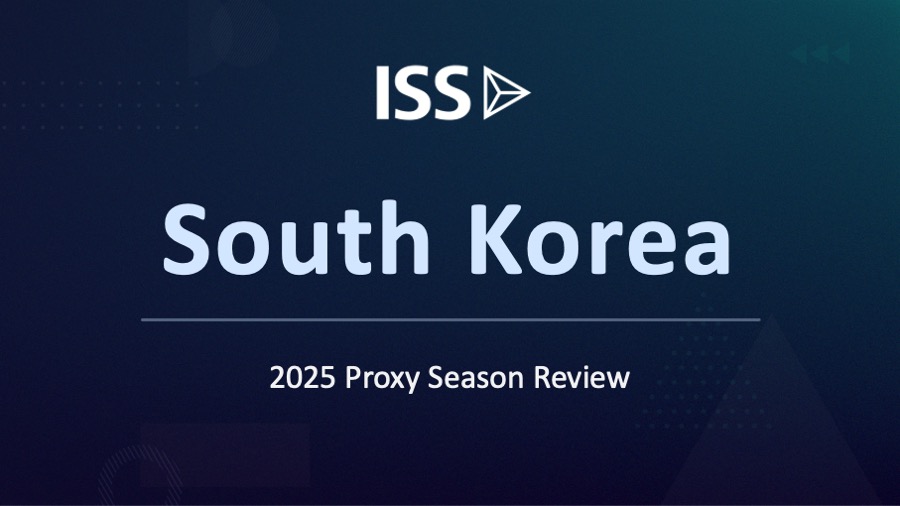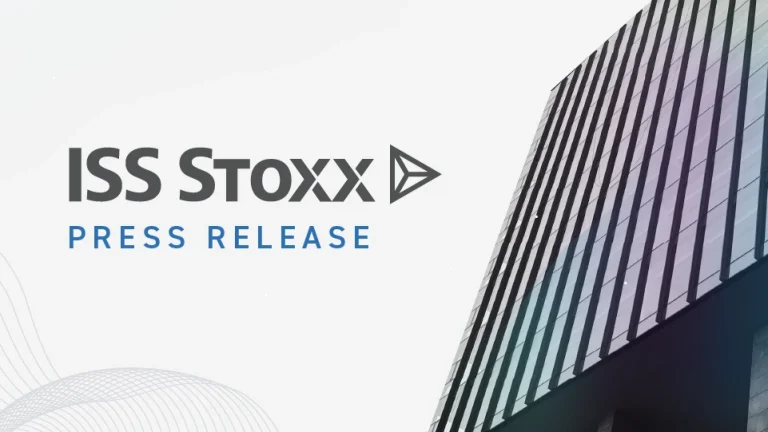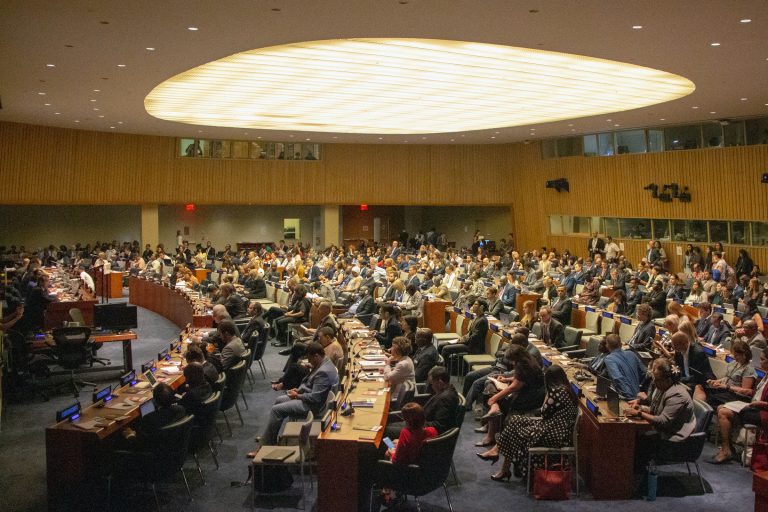Below are key takeaways from ISS’ recently released 2025 Korea Season Review. The full report is available to institutional subscribers by logging into ProxyExchange then selecting the Knowledge Center and its Library tab and to corporate subscribers by logging into Compass then selecting Governance and the Governance Library or Governance Exchange tab.
- The 2025 proxy season in South Korea was shaped by increasing regulatory attention to structural governance challenges and growing engagement from minority shareholders. A continued concentration of AGMs, progress on hybrid meetings, and evolving discussions around fiduciary duty and board independence reflected the shifting landscape. Shareholder activism increased in both scope and sophistication, especially around article amendments and cumulative voting.
- Shareholders continued to propose amendments to articles of incorporation to address reported imbalances in influence between controlling and minority shareholders. These efforts were reflected in increased regulatory discourse around structural governance issues.
- Without a clear separation of ownership and management, concerns persist on the true independence of the board and the proper performance of fiduciary duties. Over 90 percent of board chairs are inside directors, with 77 percent concurrently serving as CEO. Only approximately 1 percent of companies within the ISS Korea universe appointed a lead independent director, primarily in the financial sector. Notably, around 54 percent of major companies disclosed a CEO succession plan, and 81 percent appointed an independent director as chair of the nominating committee.
- Approximately 55 percent of companies that had directors previously associated with material governance concerns renominated those directors. While this includes financial firms, where the issues often relate to oversight, it also extends to major chaebols such as Hyosung, Lotte, SK, and Hankook & Company.
- Discussions around vote allocation, including cumulative voting, became more prominent. However, regulatory mechanisms to mitigate potential proxy abuse remain limited. Cumulative voting continues to generate debate among legislators, market participants, and governance advocates.
- With the administration indicating interest in enhancing minority shareholder rights, proposals under consideration include: (1) redefining fiduciary duty to reference all shareholders, (2) supporting cumulative voting and advisory proposals, (3) increasing the number of director candidates subject to the 3 percent rule, and (4) mandating virtual AGMs (in additon to physical meetings). While policy formulation is ongoing, there is growing emphasis on regulatory clarity to strengthen transparency and reduce structural conflicts.
- Looking ahead, shareholder activism may increasingly focus on company-specific governance initiatives, supplementing broader advocacy movements.
If you are not a subscriber, please contact sales@iss-stoxx.com (for institutional investors) or contactus@isscorporatesolutions.com (for corporations) to learn more about accessing bespoke governance research.
By: Korea Research Team




